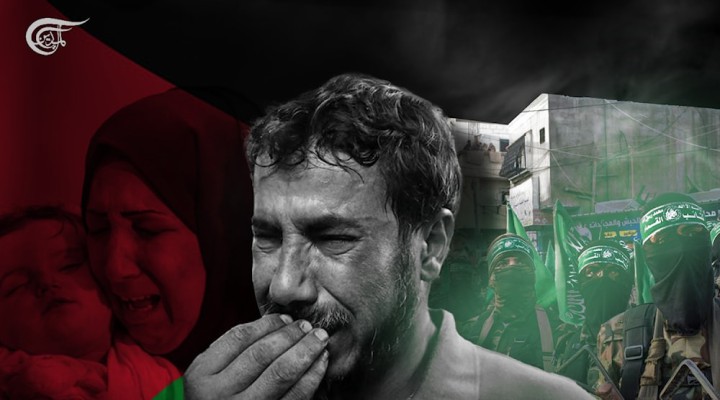Palestine: The cowardly refuge in ‘moral equivalence’

There is no ‘moral high ground’ in trying to blame Palestinian Resistance groups while sheltering the apartheid regime, the root of the problem.
When complete support for the openly genocidal Israeli regime is seen as no longer credible, imperial voices often resort to the ‘plague on both your houses’ argument, blaming both the racist regime and the Resistance.
This resort to moral equivalence, or mutual disqualification, seems to allow the imperial voice to claim a moral high ground and present any sort of self-serving nonsense as judicious wisdom.
However, there is no moral equivalence between the violence of the coloniser and that of the colonised, neither in character nor in scale and proportionality.
In the post-colonial era, illegal occupation is disqualified and struggles for national liberation, against colonialism and apartheid, are recognised as legitimate.
This has been stated and restated, including, quite specifically, in relation to current and previous Israeli massacres in Gaza.
An illegal occupier has no right to national ‘self defence’ under article 51 of the Charter of the United Nations.
Even the Israeli human rights group B’Tselem has condemned armed Israeli attacks on Palestinian civilians.
UN expert Francesca Albanese has confirmed the principle that the Israeli regime has no right to “self defence” against the occupied and besieged population of Gaza. Nor does it have any right to wage war on the people of Gaza.
The claim that Palestinian Resistance groups carry out “indiscriminate” attacks which target civilians is a reversal of the facts and has always been false. Civilian casualties have always been higher from the Israeli attacks on Gaza than any rocket fire or retaliation from Gaza.
Repeated ‘moral equivalence’ claims have come from supposedly independent sources and even alleged ‘friends’ of Palestine over the subject of alleged ‘indiscriminate rockets’ fired into Israeli territory from Gaza. When people from the occupied territories respond in self-defence, their responses are condemned, alongside calls for “Israel” to ‘show restraint’. For example, after the Zionist attacks on Gaza in 2014, Phillip Luther from Amnesty International said:
“Palestinian armed groups, including the armed wing of Hamas, repeatedly launched unlawful attacks during the conflict killing and injuring civilians … they displayed a flagrant disregard for international humanitarian law and for the consequences of their violations on civilians in both Israel and the Gaza Strip … All the rockets used by Palestinian armed groups are unguided projectiles which cannot be accurately aimed at specific targets and are inherently indiscriminate; using such weapons is prohibited under international law and their use constitutes a war crime” (Amnesty International 2015).
Many others, including the European Union (Ceren 2014) and The New York Times (Barnard and Rudoren 2014), take a similar approach. Yet repression and self-defence in this conflict are distinct both in scale and in character.
But have Palestinian retaliations really been “indiscriminate”? If we check from independent evidence, including Israeli sources, we find that the assumptions about ‘indiscriminate’ Palestinian retaliations are often unfounded. For example, during the 2014 assault on Gaza, the UN said that more than 75% of the 1,088 Palestinians killed by Israeli forces were civilians (AP 2014; Ma’an 2014). That is indeed indiscriminate. On the other side, only 6% of the 51 deaths from Palestinian attacks on “Israel” were of civilians; 48, or 94%, were IOF soldiers (UWI 2014: Anderson 2019). That is far from ‘indiscriminate’. There is no moral equivalence here; neither in character, nor in scale nor in discriminate focus.
Moral equivalence seems to have become a type of ‘qualifying statement’ in Western public debate. It is thought necessary to allow the interlocutor to be able to speak. Condemn the opponents of a Western or Western-allied regime, before any criticism is allowed. We see this argument from Australian ethics Professor Peter Singer. He said ‘I am critical of both [Hamas and “Israel”] … and I think the situation is a tragic one … clearly there are extremists on both sides … both sides have gone to extremes … you have to say, as far as Hamas is concerned … they are a terrorist organisation, they are firing rockets into Israel, they are openly trying to kill Israelis where they can’. This is a popular but cynical and self-serving ‘plague on both their houses’ argument. It just helps ‘qualify’ the discussant. Condemn Palestinian Resistance as ‘criminal’, after which some criticism of Israeli repression may be allowed. These ‘moral equivalence’ arguments, even if they point out the vast differences in scale, fail to represent the conflict in its true colors, and by that omission, aid the colonizer.
Such arguments were even more the case during the 2023 violence, where UN Secretary-General Antonio Guterres called Gaza a “children’s graveyard”.
Most casualties from the Resistance attacks of 7 October, on the garrisons and colonies around Gaza, were military personnel. The same cannot be said of the Israeli assault in Gaza, which had openly-stated genocidal intentions.
The legitimacy of any claims by the Israeli regime is further undermined by the six independent reports which have branded it an apartheid regime and, therefore, a crime against humanity. North American legal experts Richard Falk and Virginia Tilley observe that the international community has a responsibility to not aid or recognise this apartheid regime and indeed to cooperate so as to dismantle it.
There is no ‘moral high ground’ in trying to blame Palestinian Resistance groups while sheltering the apartheid regime, the root of the problem. Resort to ‘moral equivalence’ arguments simply evades this central fact.
https://english.almayadeen.net/articles/opinion/palestine–the-cowardly-refuge-in–moral-equivalence
 TheAltWorld
TheAltWorld 
0 thoughts on “Palestine: The cowardly refuge in ‘moral equivalence’”